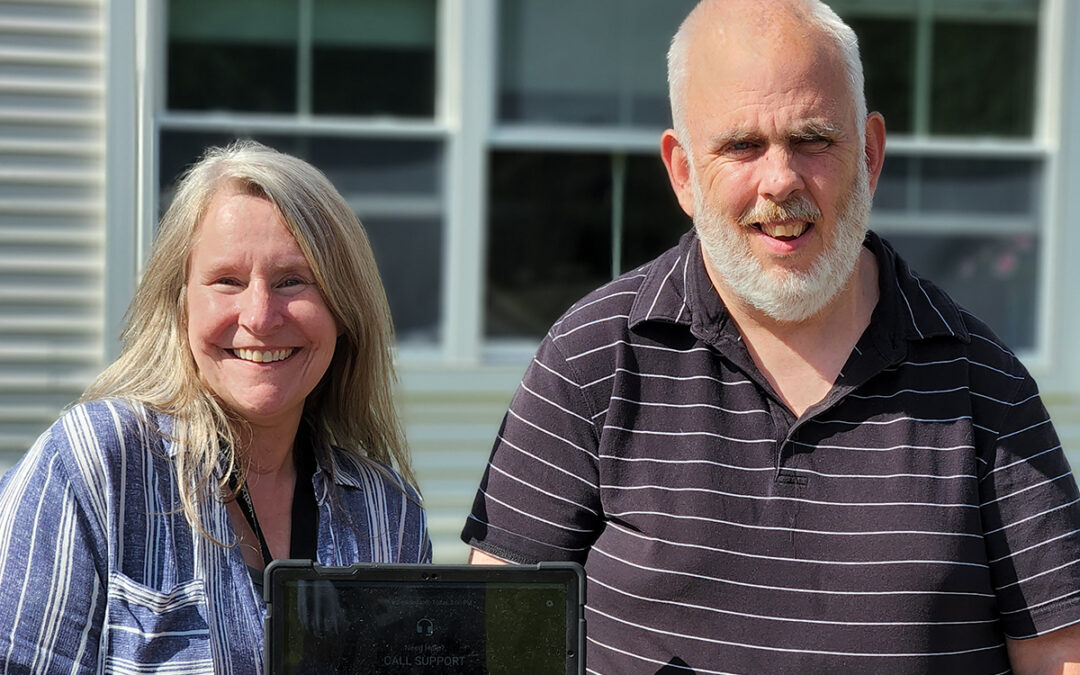Laura Stewart-Spiro, left, and Mark Van Doren, holding the SafeinHome tablet
When Mark Van Doren has a question or concern about his health or safety, he can simply ask a specialist right from the comfort of his own home.
Mark is one of a number of individuals in Northeast Arc’s Residential programs using Remote Supports and Monitoring Services (RMS), provided by SafeinHome.
SafeinHome empowers people to live independently in their own homes and communities, while minimizing the need for onsite staff presence and intervention. Through assistive technologies and 24/7 access to remote staff members who are trained in behavioral health techniques, Mark and others are feeling supported around the clock.
“I absolutely love it,” Mark said. “Somebody’s there all the time to talk to.”
Using a preprogrammed tablet, participants can be connected to a remote staff member on a scheduled or as-needed basis, as identified in each participant’s Individual Support Plan. Mark, for example, has a nightly check-in to ensure he has taken his medications. The staff of Northeast Arc provide in-person back-up supports.
“The biggest feedback we’re getting is that they have so much at their fingertips,” said Laura Stewart-Spiro, Northeast Arc’s residential supervisor. “There’s someone there to assist them at the touch of a button.”
Stewart-Spiro says the motivation for remote supports was two-fold.
“Not everyone wants a person in their space,” she said. “And we’re still in a staffing crisis. There’s so much that we would be doing that the staff of SafeinHome can do.”
Jessica Daiger, a district manager at SafeinHome, says more and more organizations are turning to remote supports, especially since the start of the COVID-19 pandemic. SafeinHome supports more than 2,000 individuals in 15 states.
“The staffing shortage has always been there, but the pandemic only made that worse,” said Daiger. “The fact that we could have staff available to connect with and talk to people—helping them with feelings of isolation and supporting behavioral health as well—was so important.”
